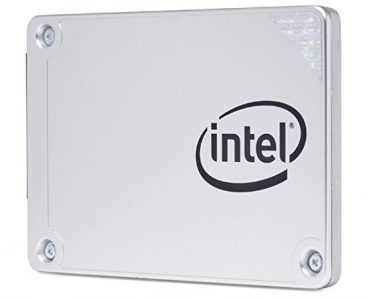Napp-it and OmniOS is an OpenSolaris forked storage platform that utilizes ZFS on a Solaris derived OS. The fact that it uses a mature enterprise file system and it is free means that it is extremely popular among IT professionals who are on constrained budgets. At STH we test hundreds of hardware combinations each year. From this experience, we are going to keep a running log of the best Napp-it and OmniOS drives. We are going to focus this guide on Napp-it and OmniOS servers with under 30 storage devices and will periodically update the listing.
Like most ZFS systems, the real speed comes from caching. ZFS is designed to make effective use of RAM and solid-state drives for caching. Napp-it and OmniOS has a small OS footprint and does not need much performance from the boot device. At STH we recommend mirrored Napp-it and OmniOS boot devices to save time should one fail. Here our are our top picks for Napp-it and OmniOS boot drives.
Boot Drives
We highly recommend solid state boot devices. They are lower power than hard drives and generally more reliable.

- Boot SSD New Option 1: Intel DC S3520 150GB ($114 on Amazon)
- Boot SSD New Option 3: Intel DC S3510 120GB ($94 on Amazon)
We do not recommend USB booting OmniOS systems. Instead, use a quality SSD or two. Intel SSDs are generally our choice for boot drives. Intel just released a new TLC SSD series called the Intel DC S3100 series which is optimized for low write workloads. That makes it perfect for a boot SSD. Using TLC NAND these drives new retail for around $100 in 240GB capacities. We suggest spending the extra $12 and getting 1/3 more space with the 240GB model.
Another popular option is to get used data center SSDs to save money. Here are a few of our top pics on used drives which are available in quantity on ebay:
- Boot SSD Used Option 1: Intel 320 80GB ($40 on ebay)
- Boot SSD Used Option 2: Intel 710 100GB ($50 to $60 on ebay)
- Boot SSD Used Option 3: Intel DC S3500 80GB – 120GB ($35 to 55 on ebay)
At STH, our perspective is that you should mirror your boot drives.
If you want something more reliable the Intel 320 and 710 series SSDs were rock solid used SATA II drives. This means they work perfectly well, at full speed, even on legacy SATA II/ SAS 1 ports such as those found on Intel Atom C2000, Intel Xeon E3 (V1 – V4) or Intel Xeon E5 (V1/ V2) platforms. With a bit of searching the 40GB drives can be purchased for $20 (Intel 320 40GB.) That is only about twice what a 32GB USB drive would cost. You do not need fast, just reliable and the 320 series and 710 series are a go-to options older generation drive. Using a SATA SSD over a USB does mean higher power consumption and an extra controller port/ drive bay used. Those are the trade-offs for reliability.
Expect to spend $200 new or $80-$110 all-in for a great mirrored Napp-it and OmniOS boot drive setup.
You can see more of our Napp-it and OmniOS Buyer’s Guides here.
